Khamenei's representative calls Jews 'most hostile beings' in antisemitic sermon
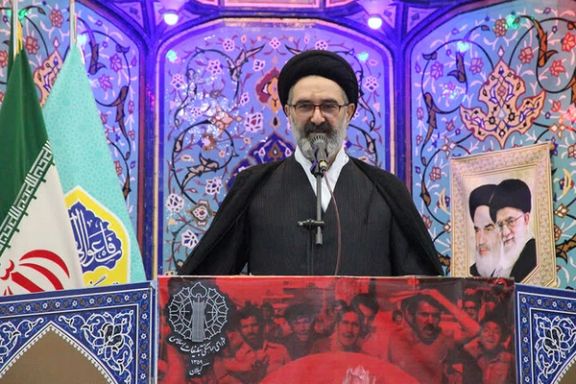
A state-appointed Iranian cleric lashed out against Jews in an antisemitic outburst on Friday.

A state-appointed Iranian cleric lashed out against Jews in an antisemitic outburst on Friday.
"The greatest dangers and harms today come from the Jews," said Khamenei's representative in Azad University of Gilan, Mohammad Hossein Safavi, during a Friday prayer sermon in Rasht.
"According to God's words in Quran, the Jews are the most hostile beings, and they have made every effort to infiltrate Islamic society," said Safavi who is also the interim Friday prayers imam of Rasht in northern Iran.
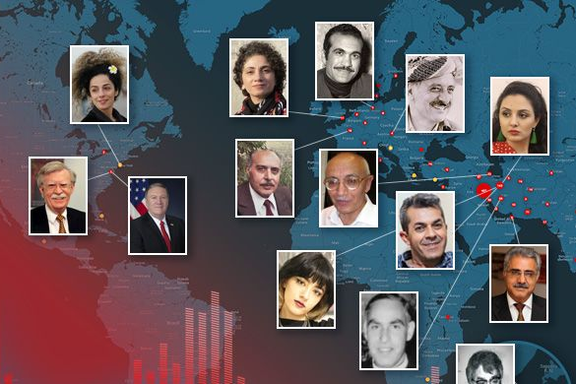
Ahmad Moradi Talebi went for his usual evening stroll with his then pregnant wife on August 10, 1987, in Geneva, Switzerland. It would be his last.
Two men believed to be Iranian agents were waiting for the young couple.
One man pushed Talebi’s wife aside while the other shot dead the former Iranian Air Force pilot who opposed the Iran-Iraq war and had defected to Iraq and then Europe.
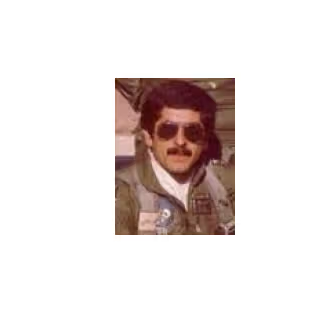
He is just one of 862 extrajudicial executions carried out by the Islamic Republic of Iran according to a landmark report by US-based rights group the Abdorrahman Boroumand Center (ABC) for human rights in Iran.
But in the names of the countless victims, little method to the murders emerges.
“The targets are not always that obvious. He [Ahmad Moradi Talebi] was against the Iran-Iraq war and the continuation of the war. He was killed, another pilot was killed in Switzerland and then some random Kurdish activists were killed in Sweden,” said Roya Boroumand, the executive director of ABC, on the latest episode of Eye for Iran podcast.
“It’s very hard to know who they [Iran] target.”
From active members of the Zoroastrian community, to those engaged in virtual political activism like Jamshid Sharmahd, to lesser-well known activists with a following inside Iran – all were among the dead.
Higher profile targets - including President-elect Donald Trump, his former national security adviser John Bolton, his secretary of state Mike Pompeo and women’s rights activist Masih Alinejad - eluded Tehran's grasp.
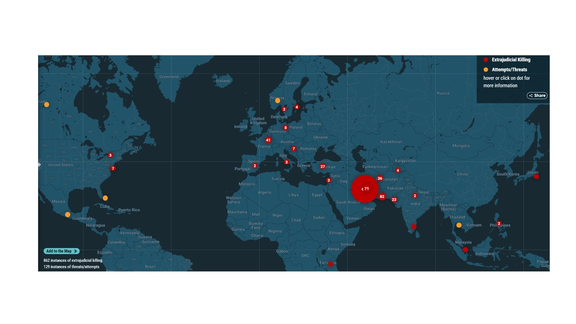
“The patterns and the scope of these killings have not been understood properly,” Boroumand told the Eye for Iran podcast.
452 assassinations outside Iran
The ABC report titled “Iran: State Violence Beyond Borders” details Iranian state violence carried out in countries across the Middle East, Europe, North America, Asia and Africa.
Out of the 862 cases of extra judicial killings, 452 of them were outside Iran’s borders. There are also 124 cases of death threats, attempted kidnappings and assassinations.
The wide scope and extent came as no surprise to Boroumand, but the brazenness of the attacks did.
“What was shocking was the arrogance with which it happens. Meaning, they can go to the office of a doctor who is organizing protests in Switzerland, in Geneva, and threaten them in person,” said Boroumand.
In many cases the host countries where these killings or attempts allegedly took place avoided making arrests or even allowed the suspects – in particular state agents – to leave, according to Boroumand’s research.
The lack of action by liberal-democratic governments, she said, contributes to a culture of impunity.
'There once lived a person named...'
For Boroumand, this project, which has been almost 23 years in the making, is more than collecting statistics and providing fact-based evidence on the topic of transnational repression. It’s about the people behind the numbers.
“There once lived a person named...” is written on her foundation’s website to memorialize the victims. The interactive map detailing 45 years of state violence by Iran domestically and internationally aims to convey the scope and seriousness of the issue, said Boroumand.
Due to the fear of speaking out and the difficulty in proving the responsibility of the Iranian state for the kidnappings and assassinations, Boroumand believes the actual number of victims is much higher.
Documenting these cases also helps to expose the way in which the Iranian establishment carries out their attacks.
Many alleged killings in the early days after the dawn of the Islamic Republic in 1979 involved Iranian agents and Iran-backed Hezbollah. Over time, Iran’s proxies started to take over, and eventually Tehran reportedly hired criminal gangs.
The Islamic Republic silences critics by turning to criminal organizations like the Hells Angels, Rumba and Foxtrot, according to a report by the Washington Post.
One case involved Pouria Zeraati, an exiled Iranian journalist working for Iran International.
In March 2023, Zeraati was ambushed and stabbed outside his home in London by attackers who were Romanian nationals.
UK authorities have yet to publicly establish any link to Tehran, which denies responsibility for the attack.
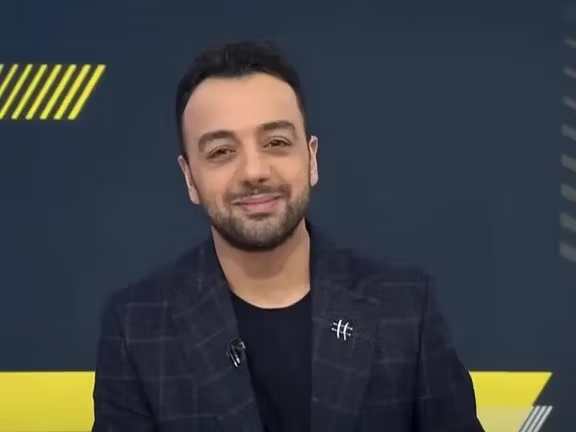
Attacks targeting Jewish and Israeli institutions in Europe this year have involved Tehran not just hiring local criminals, but also minors, according to a Bloomberg report this month.
A personal tragedy
There is also a very personal connection for Boroumand, who understands firsthand what the families' victims are going through.
Boroumand’s father, Dr. Abdorrahman Boroumand, the namesake of her and her sister Ladan's rights organization, is one of the victims included in the ABC report.
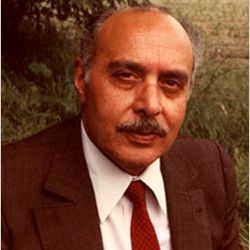
“My father was a lawyer and a pro-democracy activist,” said Boroumand.
Dr. Boroumand, a close ally of Shapour Bakhtiar, an Iranian politician who served as the last Prime Minister of Iran under the rule of Mohammad Reza Pahlavi, opposed the Islamic republic and was a member of the National Resistance Movement of Iran.
On April 18, 1991, Boroumand was stabbed to death in the lobby of his Paris apartment by agents of the Islamic Republic.
Three months later, Bakhtiar and his assistant Soroush Katibeh were also killed by three agents of the Iranian government. Iran denied any involvement.
“They couldn't get into the apartment, but they killed a policeman, a French policeman, and they killed even Bakhtiar's neighbor because they rang at the wrong door. And they wounded her sister, and one policeman was paralyzed for life,” said Boroumand, “It was like tragedy over tragedy.”
But the Boroumands would not be silenced.
Instead, they created one of the only archives of Iran’s human rights abuses to memorialize its victims, carrying on their father’s legacy.
To watch the full interview with Roya Boroumand on Eye for Iran, go to YouTube or listen on Spotify, Apple, Amazon or Castbox.
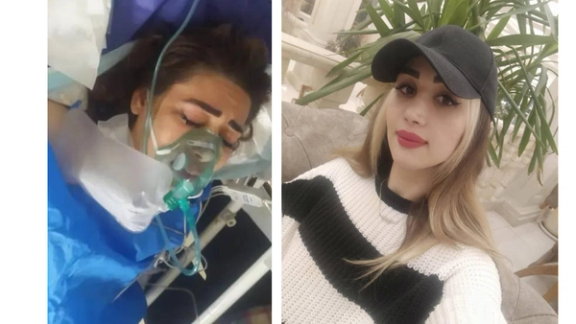
Arezou Badri, 31, has been left paralyzed after she was shot by Iranian police earlier this year for allegedly violating mandatory hijab laws, according to activist and journalist Masih Alinejad.
Citing Badri’s relatives, Alinejad on Friday said doctors determined that the bullet severed Badri’s spinal cord, preventing her from ever walking again.
“Her only ‘crime’ was defying mandatory hijab laws,” Alinejad wrote on X, adding that Badri remains hospitalized amid pressure from authorities on her family to keep silent.
Badri was shot on July 22 while returning home with her sister in Nour County, northern Mazandaran Province.
Reports obtained by Iran International revealed that police opened fire from the rear driver's side of the car stopped on a dirt road, striking Badri in the back and severely damaging her spinal cord and lungs.
A seizure order had been issued for the vehicle in which Badri was a passenger, allegedly due to a violation of Iran's mandatory hijab law. Police issue vehicle seizure alerts if the driver or a passenger are seen without hijab in a car.
The Information Center of the Mazandaran Police Command confirmed the police shooting at the car in which Badri was a passenger, saying that the driver "continued to flee despite police orders, prompting the police to shoot at the car according to the law on the use of firearms."
Badri’s family filed a complaint and the case was heard in early August, however the family was dissatisfied with the outcome and the judicial process.
Following the court hearing, informed sources told Iran International that Badri's relatives were summoned by intelligence and security agencies, pressured to stay silent and urged to withdraw their complaint.
Badri’s case fueled outrage and condemnation from rights groups, who view it as another example of Iran’s escalating violence against women over the hijab.
In 2024, Iranian authorities took action against 30,629 women over allegedly failing to observe compulsory hijab laws, with at least 644 of those women arrested for improper veiling, according to US-based rights group HRANA.
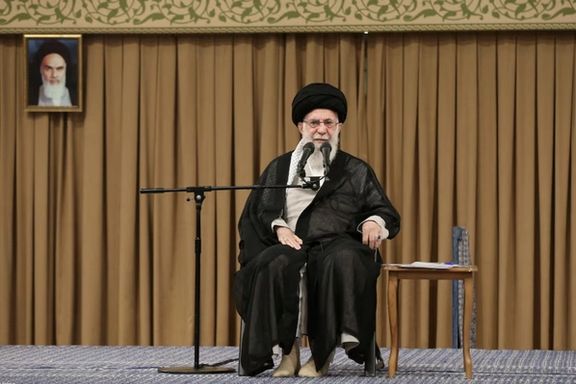
"Today, many armed and unarmed people in Iran, as well as Muslims in other countries, are eager to fight against the Zionists and await Supreme Leader Ali Khamenei's go-ahead," said Khamenei's chief of staff Mohammad Mohammadi Golpayegani.
"It is obligatory for anyone who can take a step for Palestine to do so," Golpayegani said Friday, quoting Khamenei.
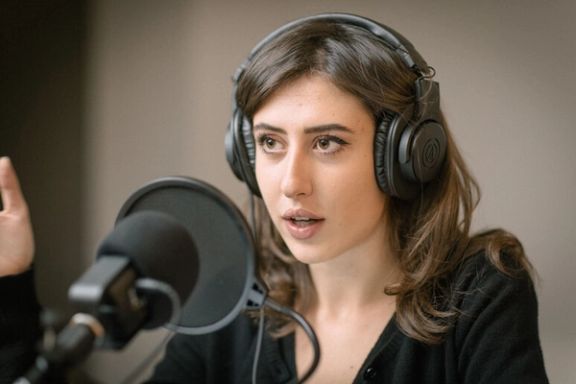
Italy’s defense minister Guido Crosetto on Friday said the entire government—led by Prime Minister Giorgia Meloni and Foreign Minister Antonio Tajani—has been working tirelessly since the onset of Cecilia Sala’s arrest in Iran to secure the journalist’s release.
“Every person who could and can be useful to achieve this goal has got to work,” Crosetto wrote on X, describing the arrest as “unacceptable.” He emphasized that negotiations with Iran “cannot be resolved by involving Western public opinion” or “the strength of popular indignation,” but only “by high-level political and diplomatic action.”
Crosetto underscored that Italy is pursuing every avenue to free Sala and has mobilized a coordinated effort across government agencies. He added that a careful diplomatic approach remains the most effective means of securing her safe return.
At the same time, member of the European Parliament (MEP) Hannah Neumann took to social media, denouncing the journalist’s detention as “another assault on media freedom, on women, on international law.”
“For all those still saying: ‘We need to judge them by their actions’ – these are their actions,” Neumann said, urging immediate action.
The Iranian government has not yet commented on the circumstances of Sala’s detention. However, observers such as rights advocate and Iranian journalist Shahed Alavi suggest her arrest may be in Iran’s response to the detention of Iranian national Mohammad Abedini who was arrested at Milan airport in connection with a drone strike in Jordan earlier this year that killed US troops.
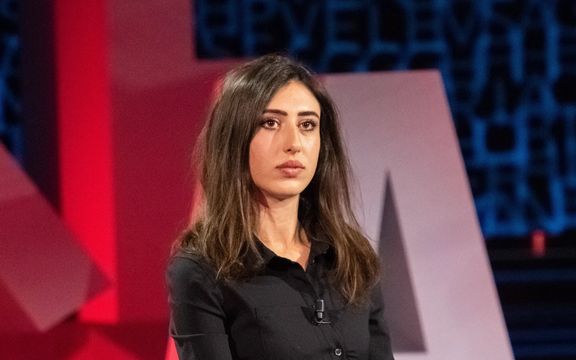
German Member of the European Parliament Hannah Neumann on Friday condemned Iran's detention of Italian journalist Cecilia Sala as another case of "hostage taking" by Islamic Republic authorities aimed at securing the release of its convicted prisoners abroad.
"Another hostage has been taken by Islamic Republic of Iran. Another assault on media freedom, on women, on international law," Neumann said in a post on her X account.
She called for immediate action to secure Sala’s release, adding: “For all those still saying: ‘We need to judge them [Iranian authorities] by their actions’ – these are their actions.”